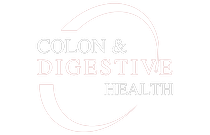What is Colon Cancer?

- colondigestive
- March 4, 2024
- 1:21 pm
- No Comments
Colon Cancer begins in the large intestine (colon). The colon is the final part of the digestive tract.
Colon cancer usually affects older adults although it can occur at any age. It usually begins as small clumps of cells called polyps that form on the inside of the colon. Over time, some of these polyps can become colon cancers.
Polyps may be small and may not produce any symptoms. Due to this reason, doctors recommend regular screening tests like colonoscopy to help prevent colon cancer by identifying and removing polyps before they turn into cancer.
Symptoms
Many people with colon cancer experience no symptoms in the early stages of the disease. When symptoms appear, they may include.
- Blood in your stool
- A persistent change in your bowel habits like diarrhea and constipation or a change in the consistency of your stool
- Persistent abdominal discomfort like pain, cramps, or gas
- Unexplained weight loss
Risk factors
Factors that may increase your risk of colon cancer include:
Older age. Majority of people with colon cancer are older than 50. However, it can be diagnosed at any age. The rates of colon cancer in people younger than 50 have been increasing.
African- American population. African Americans have a greater risk of colon cancer than do people of other races.
A personal history of colorectal cancer or polyps. If you have already had colon cancer or colon polyps, you have a greater risk of colon cancer in the future.
Family history of colon cancer. You are more likely to develop colon cancer if you have a blood relative who has colon cancer. If more than one family member has colon cancer, your risk is even greater.
Smoking. Smoking increases your risk of colon cancer.
Alcohol. Heavy alcohol increases your risk of colon cancer.
Low-Fiber, high-fat diet. Colon cancer may be associated with western diet which is low in fiber and high in fat.
A sedentary lifestyle. Colon cancer risk may increase with inactivity. Regular physical activity may reduce your risk of colon cancer.
Obesity. People who are obese have an increased risk of colon cancer.
Diabetes. Diabetes increases your risk of colon cancer.
Prevention
Screening for colon cancer.
Doctors recommend colon cancer screening at 50 years of age. People with increased risk like those with family history of colon cancer should consider screening sooner.
Several screening options exists. Talk about your options with your doctor.
Lifestyle changes to reduce your risk of colon cancer.
You may reduce your risk for colon cancer by taking the following steps.
- Eat a variety of fruits, vegetables, and whole grains.
- Maintain a healthy weight.
- Exercise regularly.
- Stop smoking.
- Drink alcohol in moderation, if at all.
© 2024 All Rights reserved © 2024 by Colon & Digestive Health Specialists

